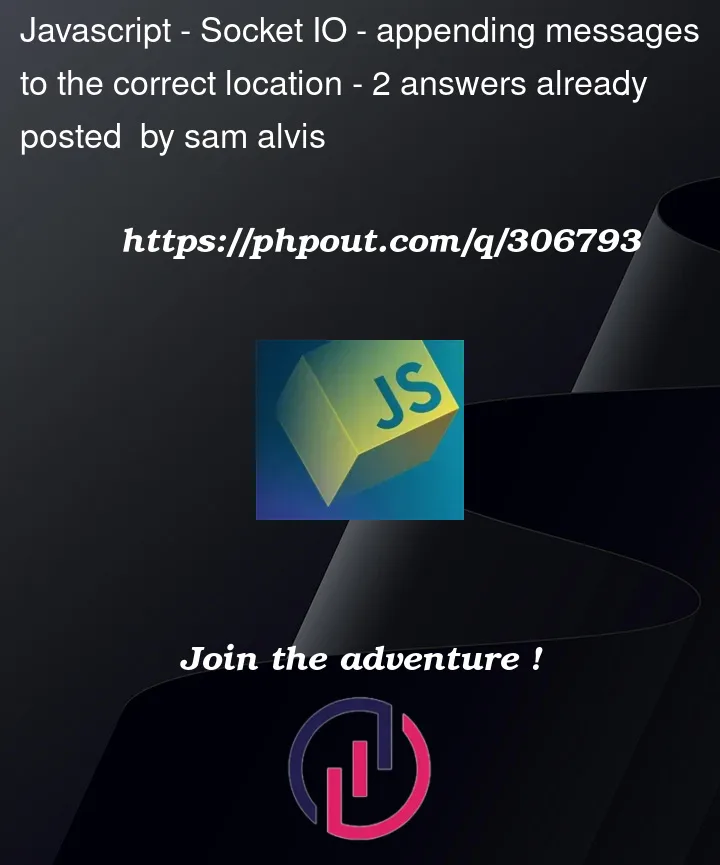I am creating a real time chat application, where users can chat with other users in real time. All users are stored in my MongoDB Database. I’m using React on the frontend, and node with express on the backend.
When users connect to the socket server, they’re added to the users array stored on the server, like so:
var users = [
// User objects
{username: test1, id: 32d2, socketId: ue3e9393kd3},
{username: test2, id: 322, socketId: ude3e339393kd3},
{username: test3, id: 333dw2, socketId: ud33e9393kd3},
]
On the frontend, when chatting with a user, they first select the other users name from a messages list, and it redirects to the route chat/otheruserid. So whatever user they want to chat with, the other users id would be stored in the url.
When submitting the message to send, it is received by the server and sent back to the client. I currently use the following code to send message events.
io.to(user.socketId).emit('send message', msg)
This socket id would be obtained by filtering the users array to find a specific user (i.e the one they selected on the frontend to chat with)
The problem I have, is if using the example above, if the user test1 had a chat with test2, and a chat with test3, if both test2 and test3 sent a message to user test1, how would I be able to append the message to the DOM of the correct chat screen.
For example, if test2 and test3 send messages to test1 at approximately the same time, and test1 was on the chat page with test2, then you could append the message from test2 to the current page’s DOM. However if when on the chat page with test2, and test3 sends a message, how would I append the message from test3 to the chat screen located at the path: chat/test3id, so when the user eventually goes to this path, the new message has been appended to the dom? Thanks.




2
Answers
@Sam I think, you need a way to associate the incoming msgs with the correct chat screen on the frontend. One good approach is to use target user’s id when sending msg from the server to the client.
I can show you a simplified example.
Hope to be helpful for your understanding.
I recoded to send you more brief example, with the variable names on your explanation of scenario, namely test1,2,3.
Hope to be more helpful.